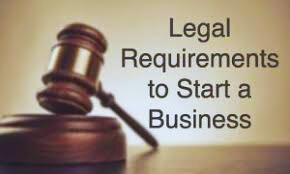Introduction:
Starting a business can be an exciting and fulfilling journey, but it also comes with a plethora of legal requirements that every entrepreneur must navigate. Understanding these legalities is crucial for establishing a solid foundation for your business and avoiding potential pitfalls down the road. In this blog post, we will explore the essential legal requirements for starting a business, ensuring you have all the information you need to launch successfully.
1. Choose Your Business Structure
One of the first legal decisions you’ll need to make is selecting the appropriate business structure. The most common types include:
- Sole Proprietorship: This is the simplest structure, where the business is owned and operated by one individual. It requires minimal paperwork but does not protect personal assets from business liabilities.
- Partnership: A partnership involves two or more people who agree to share the profits and responsibilities of the business. It’s essential to draft a partnership agreement outlining each partner’s roles and contributions.
- Limited Liability Company (LLC): An LLC combines the benefits of a corporation and a sole proprietorship. It protects personal assets from business debts and liabilities while allowing for flexible management.
- Corporation: A corporation is a more complex structure that offers the highest level of protection for personal assets. However, it comes with more regulatory requirements and formalities.
Choosing the right structure is critical, as it affects taxation, liability, and the overall operation of your business.
2. Register Your Business Name
Once you’ve decided on a business structure, you need to choose a unique business name and register it. Conduct a name search to ensure it’s not already in use, and check for any trademark issues. If you’re operating under a different name (DBA), you may also need to register that with your local government.
3. Obtain Necessary Licenses and Permits
Depending on your business type and location, you may need various licenses and permits to operate legally. Common licenses include:
- Business License: Almost all businesses require a basic business license issued by the local government.
- Professional Licenses: Certain professions, such as healthcare, finance, or legal services, require specialized licenses.
- Health and Safety Permits: If you’re in the food industry or operating in a facility that may affect public health, you may need health permits.
- Zoning Permits: Ensure your business location complies with local zoning laws.
Research the specific requirements for your industry and locality to ensure compliance.
4. Obtain an Employer Identification Number (EIN)
If you plan to hire employees or operate as a corporation or partnership, you’ll need to obtain an Employer Identification Number (EIN) from the IRS. This number is essential for tax purposes and is often required when opening a business bank account or applying for loans.
5. Open a Business Bank Account
Separating your personal and business finances is vital for maintaining accurate records and protecting your personal assets. Open a dedicated business bank account to manage your finances, and consider using accounting software to keep track of expenses and income.
6. Understand Tax Obligations
Every business must comply with federal, state, and local tax regulations. Research your tax obligations based on your business structure, including income tax, self-employment tax, sales tax, and payroll taxes if you have employees. Consult with a tax professional to ensure you’re meeting all requirements and taking advantage of any deductions.
7. Get Insurance Coverage
Protecting your business from unexpected events is essential. Depending on your business type, consider obtaining various insurance policies, such as:
- General Liability Insurance: Covers claims related to injuries or damages.
- Professional Liability Insurance: Protects against claims of negligence or malpractice.
- Workers’ Compensation Insurance: Required if you have employees, covering work-related injuries.
8. Comply with Employment Laws
If you plan to hire employees, familiarize yourself with employment laws, including wage and hour laws, workplace safety regulations, and anti-discrimination laws. Implement clear policies and procedures to ensure compliance and create a positive work environment.
Conclusion
Starting a business involves navigating a complex landscape of legal requirements, but understanding these essentials can help set you up for success. From choosing the right business structure to obtaining necessary licenses and permits, each step is crucial in establishing a legally compliant and thriving business. Consider consulting with legal and financial professionals to ensure you meet all requirements and make informed decisions.
By taking the time to address these legal obligations, you can focus on what truly matters—growing your business and achieving your entrepreneurial dreams.
By following these guidelines and understanding the legal requirements for starting a business, you can build a strong foundation for your entrepreneurial journey.



